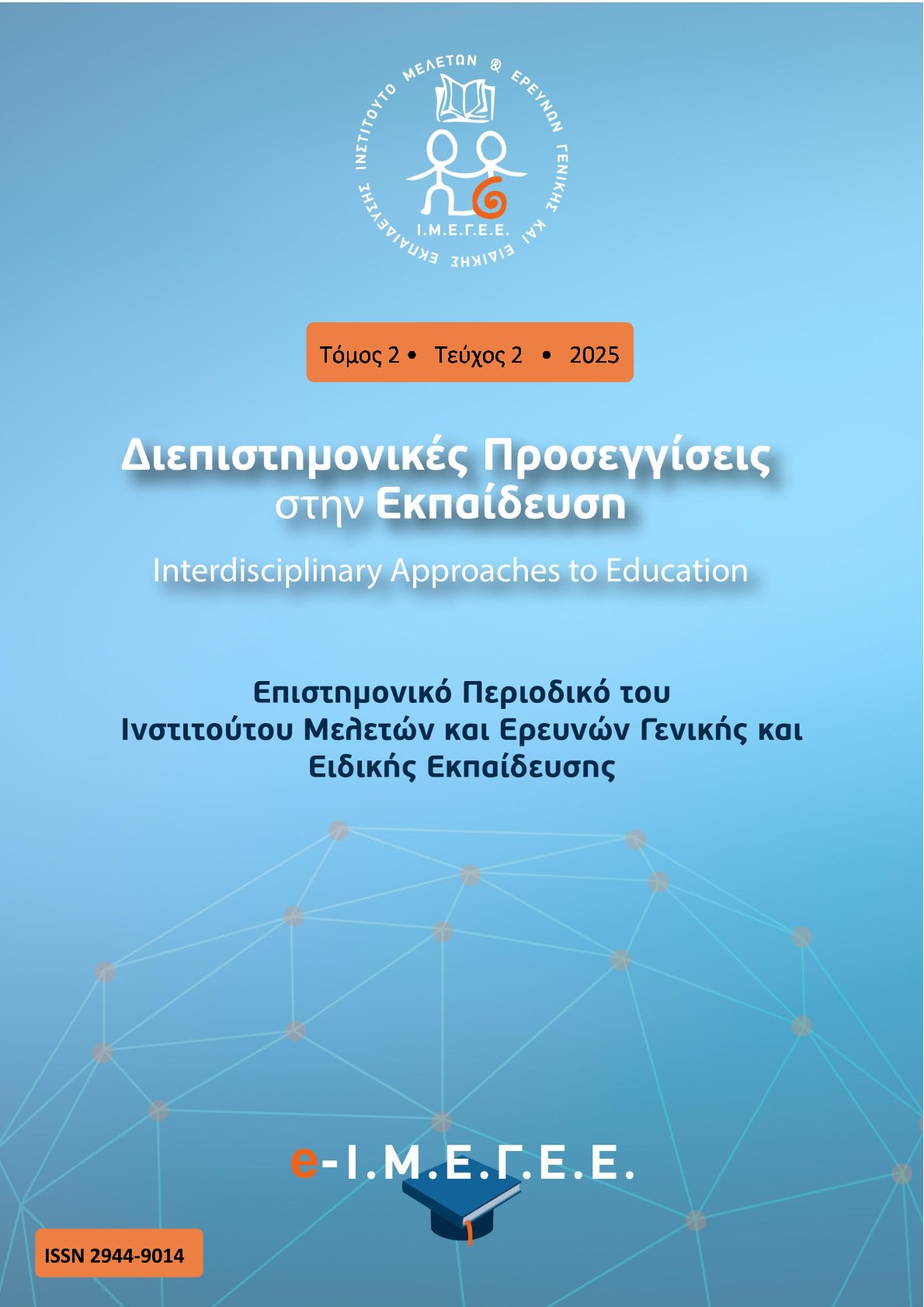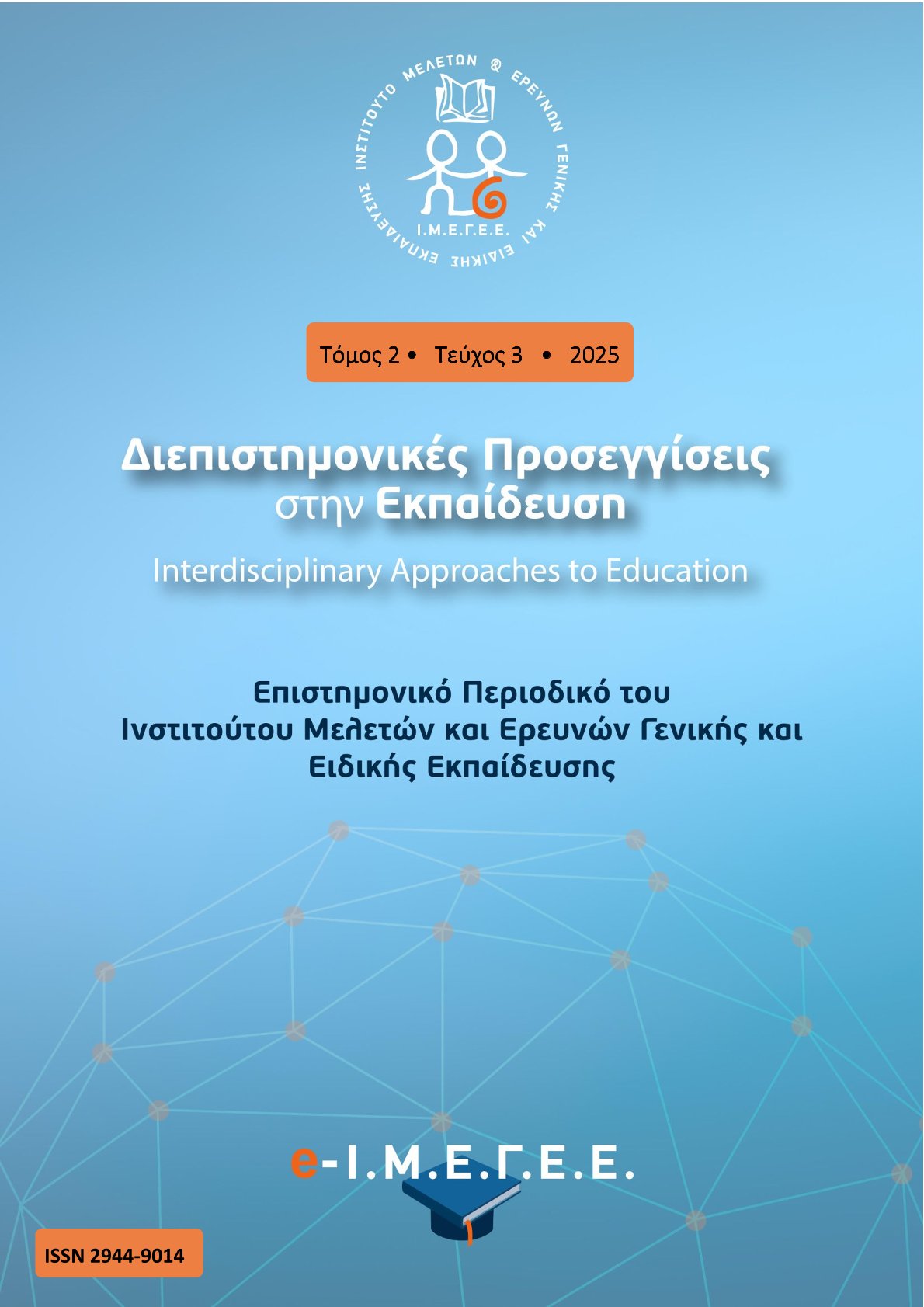Από τη Φροντίδα στην Αξιολόγηση: Κοινωνικοπολιτισμικές Όψεις της Πρώιμης Παιδικής Ανάπτυξης σε συνθήκες φτώχειας και αναπηρίας

Περίληψη
Η πρώιμη παιδική ηλικία αναγνωρίζεται διεθνώς ως μια καθοριστική περίοδος για τη θεμελίωση της μελλοντικής γνωστικής, κοινωνικής, συναισθηματικής και ακαδημαϊκής ανάπτυξης του παιδιού. Σε αυτό το κρίσιμο αναπτυξιακό στάδιο, η ποιότητα των σχέσεων με τους γονείς και το συνολικό οικογενειακό περιβάλλον αναδεικνύονται ως καθοριστικοί παράγοντες.
Η παρούσα βιβλιογραφική ανασκόπηση εστιάζει στο ρόλο της γονικής υποστήριξης και στις επιδράσεις της φτώχειας στην αναπτυξιακή πορεία και την αξιολόγηση των μικρών παιδιών, μέσα από μια κοινωνικοπολιτισμική οπτική. Η φτώχεια δεν αποτελεί απλώς την έλλειψη υλικών πόρων, αλλά συνιστά μια σύνθετη κοινωνική συνθήκη που επηρεάζει τη δομή και λειτουργία της οικογένειας, τις γονικές προσδοκίες, την ποιότητα της φροντίδας και την πρόσβαση σε ευκαιρίες μάθησης. Πολλές μελέτες δείχνουν ότι τα παιδιά από οικογένειες με χαμηλό εισόδημα διατρέχουν αυξημένο κίνδυνο για καθυστερήσεις στη γλωσσική ανάπτυξη, χαμηλότερες ικανότητες αυτορρύθμισης και περιορισμένη κοινωνική ένταξη. Οι γονείς τους συχνά βιώνουν υψηλά επίπεδα ψυχολογικού στρες, κατάθλιψης και κοινωνικής απομόνωσης — παράγοντες που περιορίζουν τη θετική εμπλοκή τους στις πρώιμες μαθησιακές διαδικασίες.
Ιδιαίτερη έμφαση δίνεται στη διασταύρωση της φτώχειας με την αναπηρία. Οι οικογένειες που μεγαλώνουν παιδιά με αναπτυξιακές ή λειτουργικές δυσκολίες αντιμετωπίζουν πολλαπλές μορφές αποκλεισμού και αόρατης ανισότητας. Τα παιδιά αυτά είναι πιο ευάλωτα σε καθυστερημένη διάγνωση, στιγματισμό και ερμηνείες του δυναμικού τους που βασίζονται στο έλλειμμα. Η ανασκόπηση υπογραμμίζει την ανάγκη επαναπροσδιορισμού των αξιολογητικών πρακτικών στην προσχολική εκπαίδευση. Τα σταθμισμένα εργαλεία συχνά αποτυγχάνουν να αποδώσουν έγκυρα τις ικανότητες παιδιών που μεγαλώνουν σε κοινωνικά και πολιτισμικά ετερογενή περιβάλλοντα, οδηγώντας σε μεροληπτικές ερμηνείες και εκπαιδευτικό αποκλεισμό.
Αντί γι’ αυτό, προτείνεται μια μετατόπιση προς πολιτισμικά ευαίσθητες και οικοσυστημικές προσεγγίσεις, οι οποίες λαμβάνουν υπόψη τη δυναμική της οικογένειας, τα συμφραζόμενα πλεονεκτήματα και τον προστατευτικό ρόλο της υποστηρικτικής φροντίδας στην ενίσχυση της ανθεκτικότητας.
Καταλήγοντας, η ενίσχυση της γονικής εμπλοκής και η αναγνώριση της πολυδιάστατης φύσης της φτώχειας και της αναπηρίας, όχι μόνο ως παιδαγωγικές αλλά και ως κοινωνικές προκλήσεις, αποτελούν κρίσιμα βήματα προς ένα πιο δίκαιο και συμπεριληπτικό σύστημα πρώιμης εκπαίδευσης.
Λεπτομέρειες άρθρου
- Πώς να δημιουργήσετε Αναφορές
-
Γκιαούρη Σ. (2025). Από τη Φροντίδα στην Αξιολόγηση: Κοινωνικοπολιτισμικές Όψεις της Πρώιμης Παιδικής Ανάπτυξης σε συνθήκες φτώχειας και αναπηρίας. Διεπιστημονικές Προσεγγίσεις στην Εκπαίδευση, 2(2). https://doi.org/10.12681/.42054
- Ενότητα
- Articles
Ενημέρωση για τα πνευματικά δικαιώματα
Οι συγγραφείς των άρθρων που δημοσιεύονται στο περιοδικό διατηρούν τα δικαιώματα πνευματικής ιδιοκτησίας επί των άρθρων τους, δίνοντας στο περιοδικό το δικαίωμα της πρώτης δημοσίευσης. Άρθρα που δημοσιεύονται στο περιοδικό διατίθενται με άδεια Creative Commons 4.0 και σύμφωνα με την άδεια μπορούν να χρησιμοποιούνται ελεύθερα, με αναφορά στο/στη συγγραφέα και στην πρώτη δημοσίευση για μη κερδοσκοπικούς σκοπούς και με δικαίωμα τροποποίησης μόνον με παρόμοια διανομή (αν αναμείξετε, τροποποιήσετε, ή δημιουργήσετε πάνω στο υλικό, πρέπει να διανείμετε τις δικές σας συνεισφορές υπό την ίδια άδεια όπως και το πρωτότυπο).
Απαγορεύεται η αντιγραφή, αποθήκευση και διανομή της παρούσας εργασίας, εξ’ολοκλήρου ή τμήματος αυτής, για εμπορικό σκοπό. Επιτρέπεται η ανατύπωση, αποθήκευση και διανομή για σκοπό µη κερδοσκοπικό, εκπαιδευτικής ή ερευνητικής φύσης, υπό την προϋπόθεση να αναφέρεται η πηγή προέλευσης και να διατηρείται το παρόν µήνυµα. Ερωτήματα που αφορούν τη χρήση της εργασίας για κερδοσκοπικό σκοπό πρέπει να απευθύνονται προς τους συγγραφεα-είς. Οι απόψεις και τα συμπεράσματα που περιέχονται σε αυτό το έγγραφο εκφράζουν το-ους συγγραφέα-είς και δεν πρέπει να ερμηνευθεί ότι αντιπροσωπεύουν τις επίσηµες θέσεις του Ινστιτούτου Μελετών και Eρευνών Γενικής και Ειδικής Εκπαίδευσης (Ι.Μ.Ε.Γ.Ε.Ε.).
Copyright notice
Authors retain copyright and grant the journal right of first publication with the work simultaneously licensed under a Creative Commons Attribution NonCommercial License that allows others to share the work with an acknowledgement of the work's authorship and initial publication in this journal.



